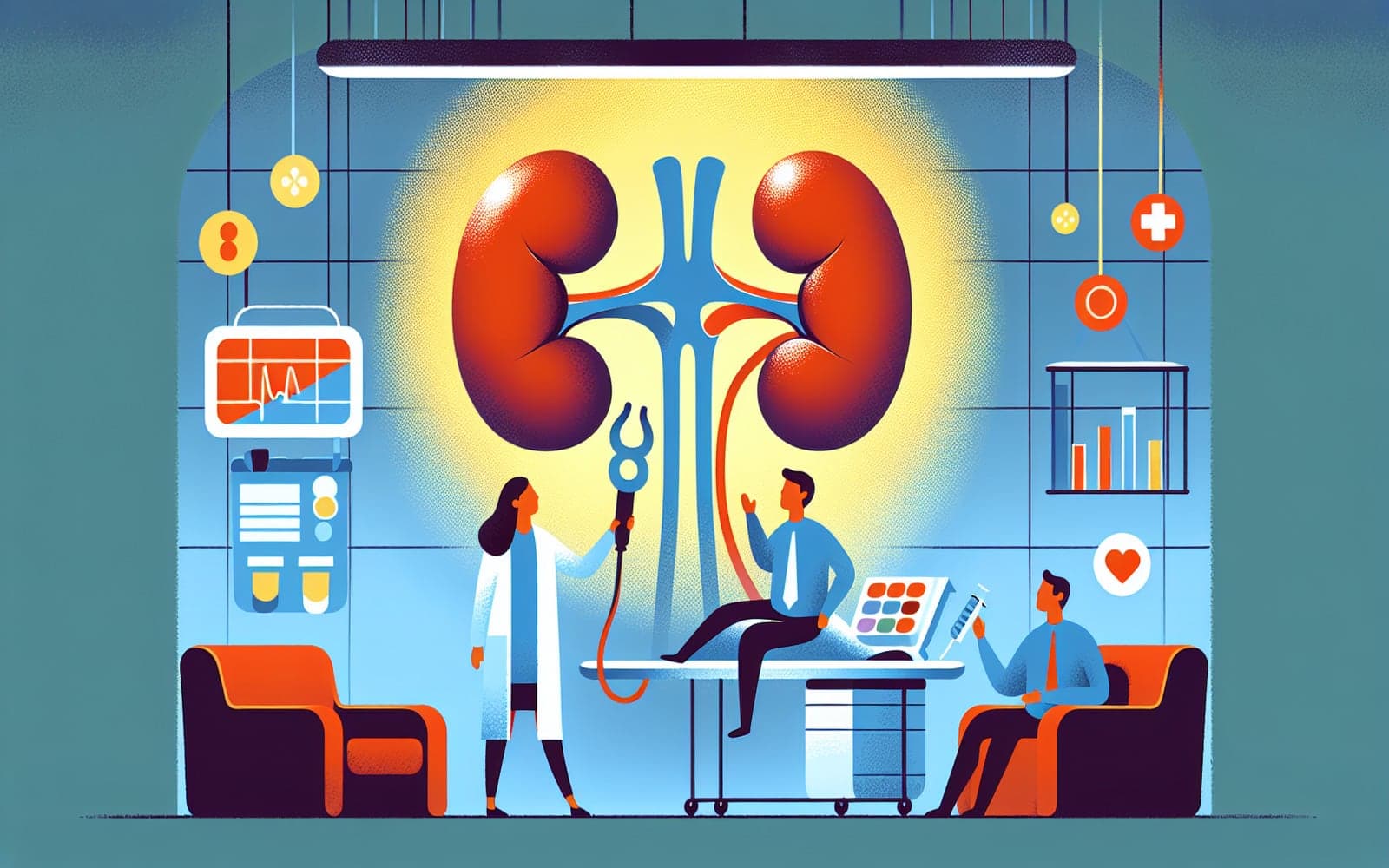Managing Kidney Stones: What Are Your Options?
Published: Oct 30, 2023
Kidney stones can cause severe pain, but how are they treated? Explore the various treatment options available to manage and alleviate this condition.
Contents
Pain Relief Strategies
Pain management is crucial for patients experiencing kidney stones. Nonsteroidal anti-inflammatory drugs (NSAIDs) are often the first line of treatment to relieve pain. These medications help reduce inflammation and alleviate discomfort. For those who cannot tolerate NSAIDs, opioids may be considered, although they come with a higher risk of side effects.
Facilitating Stone Passage
Medical expulsive therapy can aid in the passage of ureteral stones. Alpha blockers like tamsulosin are commonly prescribed to relax the muscles in the ureter, making it easier for stones to pass. This treatment is particularly effective for stones between 5 and 10 mm in size.

Surgical Interventions
When stones are too large to pass naturally, surgical options are considered. Procedures like ureteroscopy, shock wave lithotripsy, and percutaneous nephrolithotomy can remove or break down stones. These methods are chosen based on the stone's size, location, and composition.
Frequently Asked Questions
NSAIDs are the first line of pain relief for kidney stones.
Alpha blockers like tamsulosin can help stones pass naturally.
Surgery is needed for stones too large to pass naturally.
Options include ureteroscopy, shock wave lithotripsy, and nephrolithotomy.
Key Takeaways
Are you aware of all the treatment options for kidney stones?
Discuss with Doctronic today to find the best treatment for your kidney stones.Related Articles
References
Preminger GM, Tiselius HG, Assimos DG, et al. J Urol 2007; 178:2418.
Expert Panel on Urological Imaging, Gupta RT, Kalisz K, et al. J Am Coll Radiol 2023; 20:S315.
Always discuss health information with your healthcare provider.

